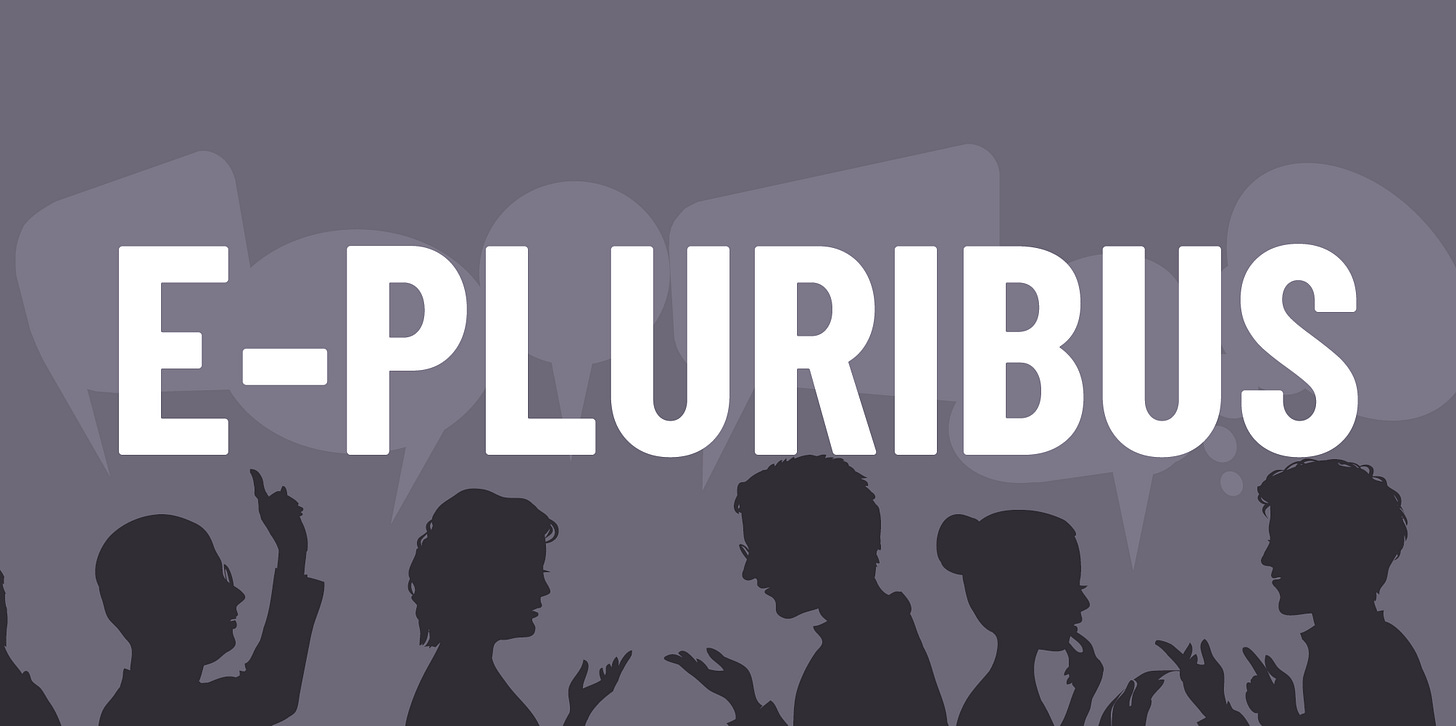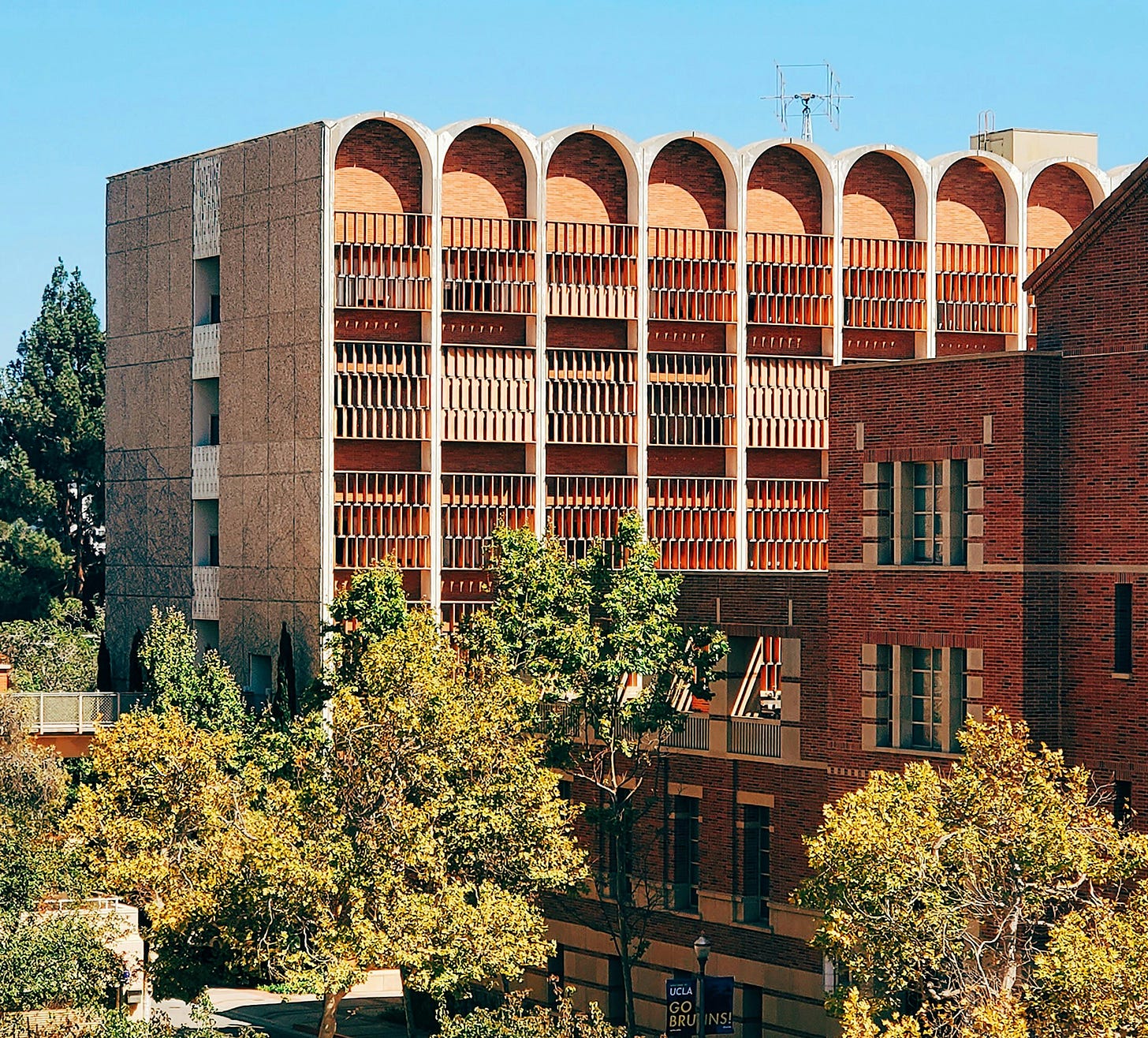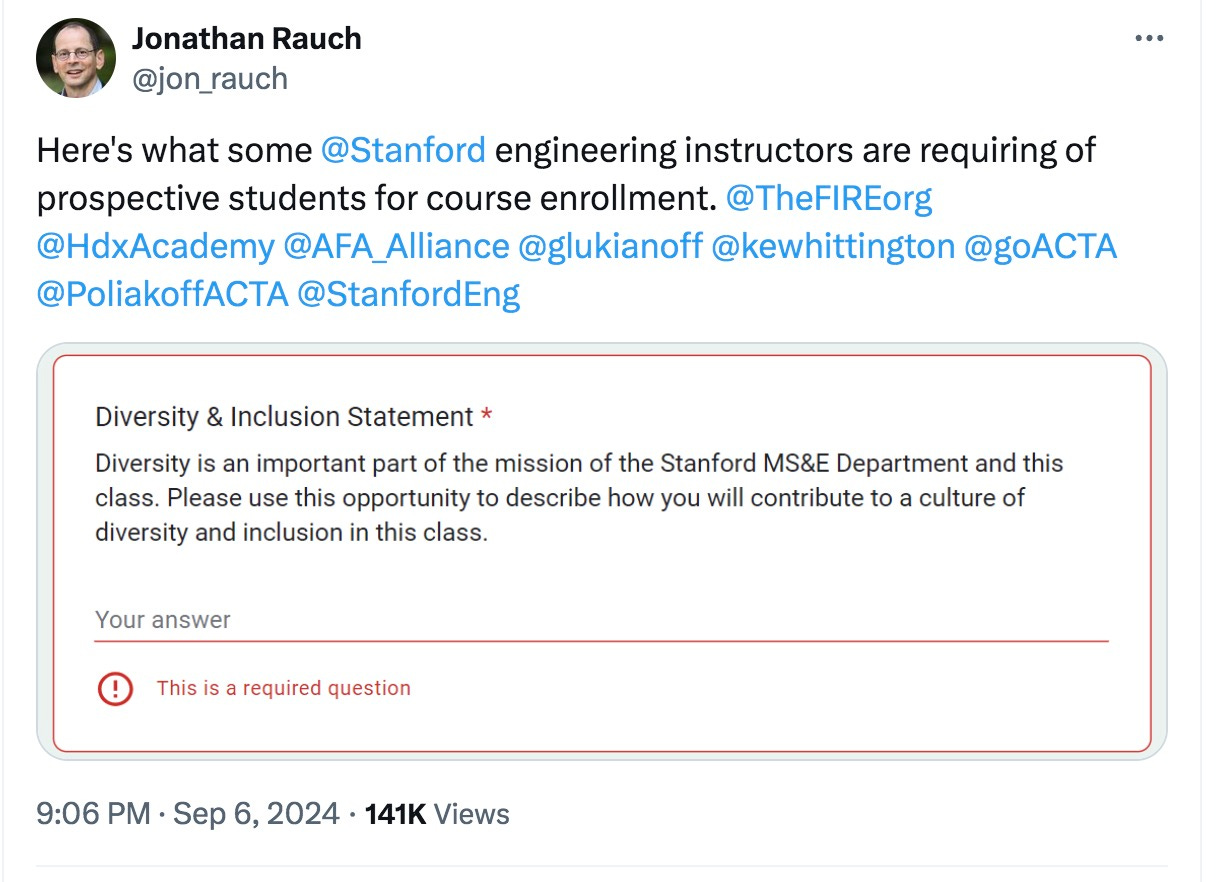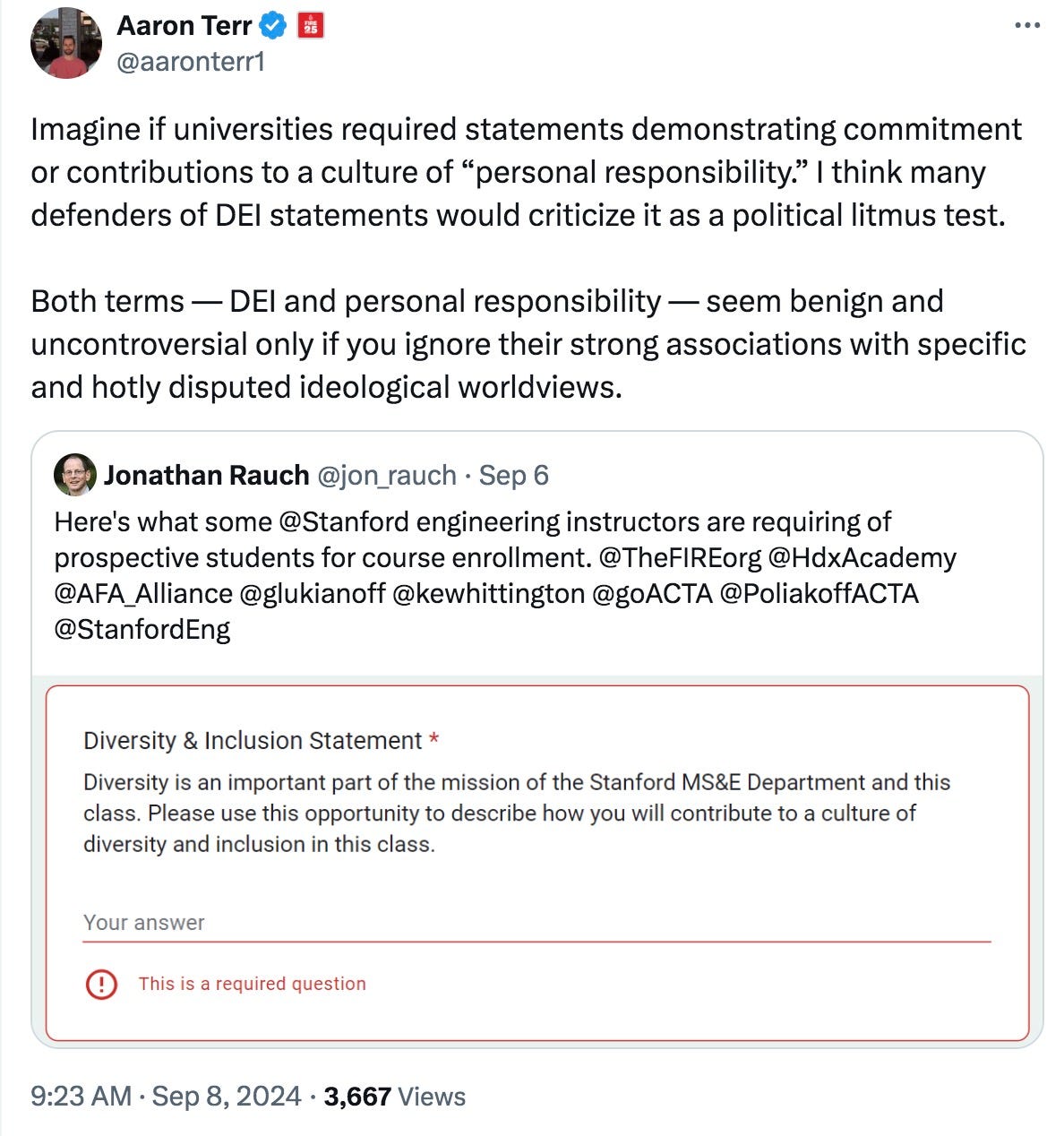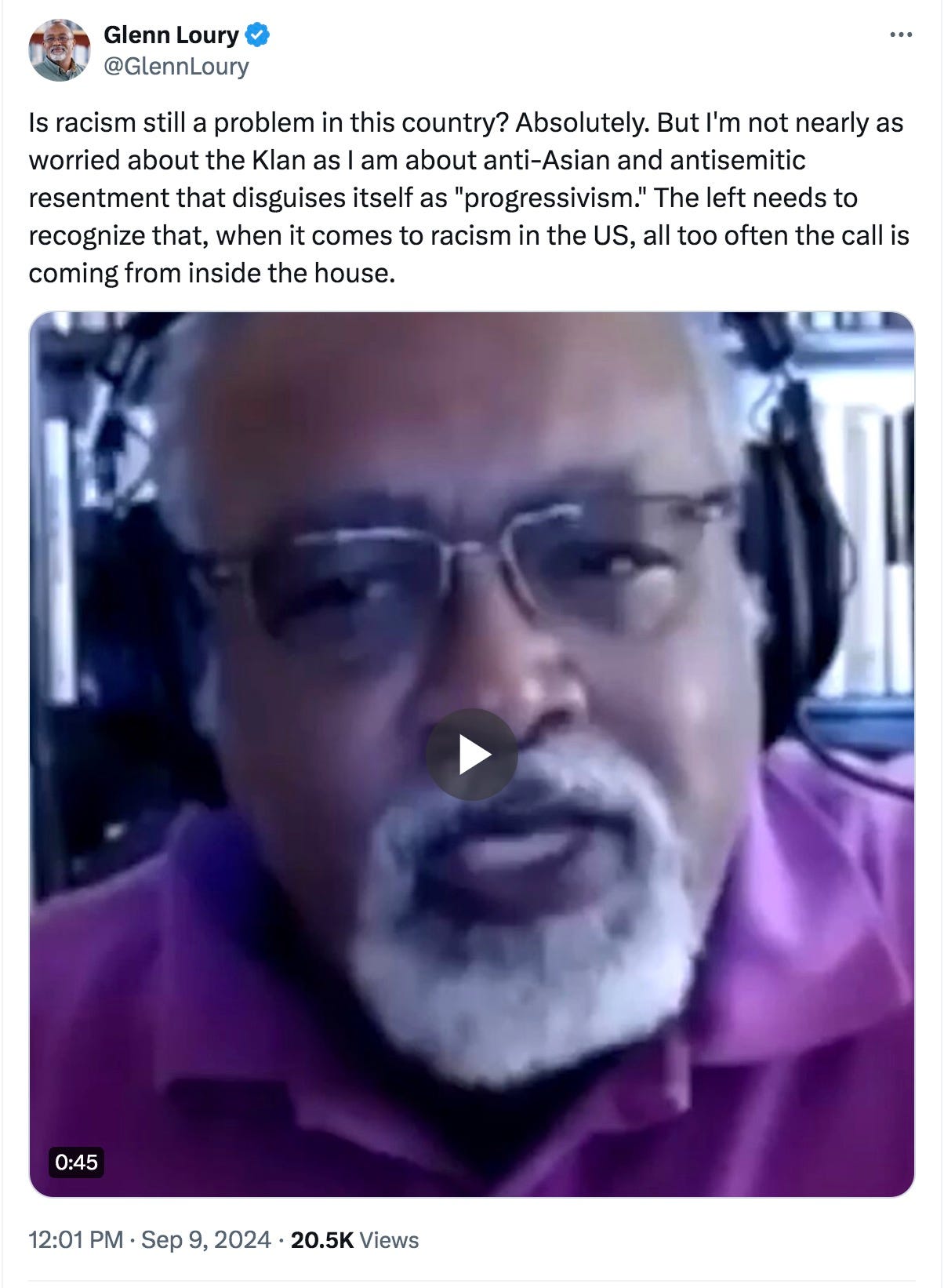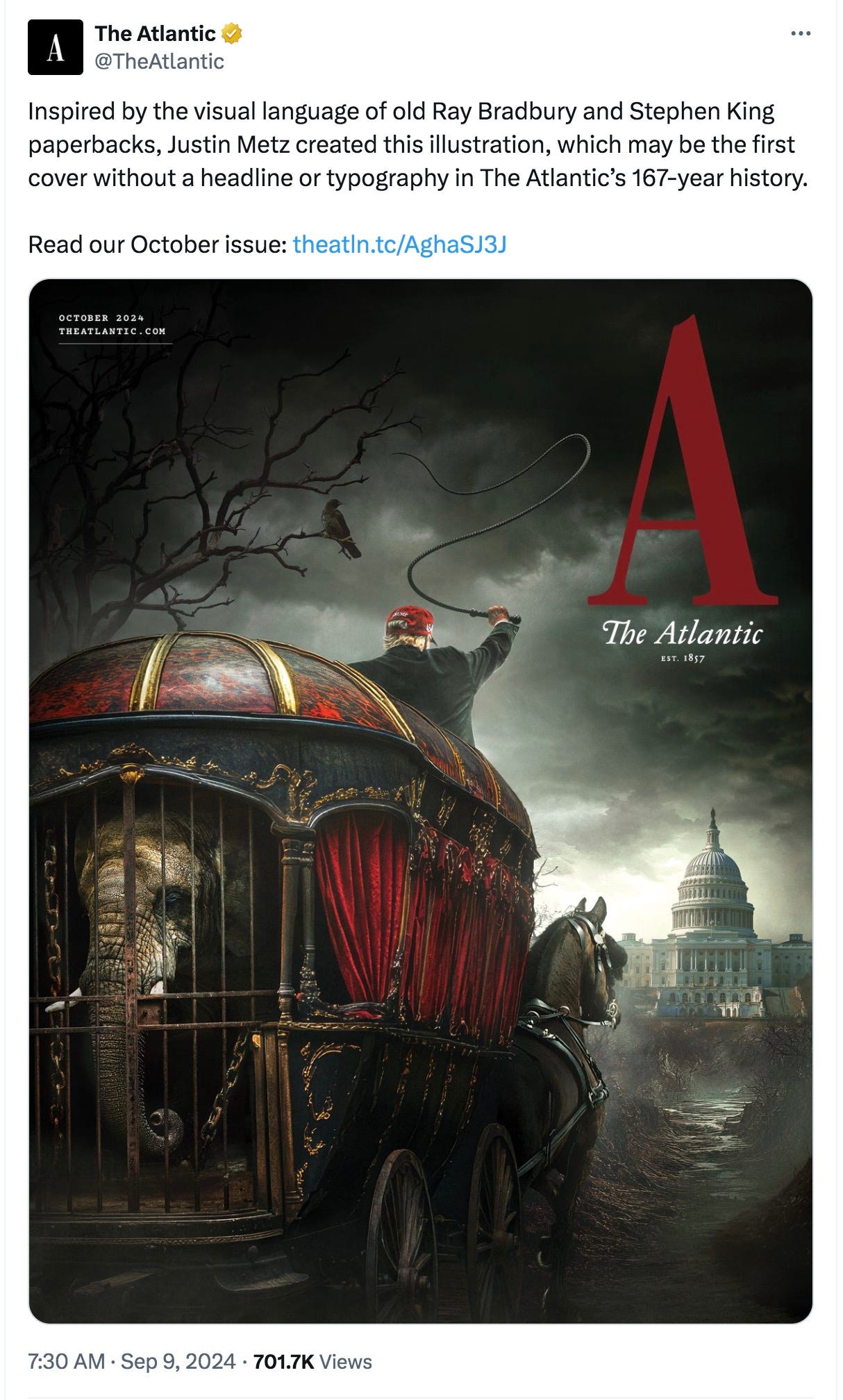E-Pluribus | September 9, 2024
Is American democracy history? Technological innovation requires freedom; and UCLA prepares for another year of protests.
A round-up of the latest and best musings on the rise of illiberalism in the public discourse:
N. S. Lyons: Twilight of American Democracy?
At City Journal, N.S. Lyons reviews a new book, The Total State: How Liberal Democracies Become Tyrannies, by Auron MacIntyre. According to Lyons, MacIntyre spares no one in his takedown of those undermining the American political system. Though not original with him, MacIntyre uses the concept of managerialism to explain what is happening and the consequences of a failure to reverse the trend.
It’s been a confusing summer for those who still believe nothing is amiss about the American republic. One moment the sitting president was, according to the near-universal insistence of mainstream media, sharp as a tack—all evidence to the contrary declared disinformation. The next he was suddenly agreed to be non compos mentis, unceremoniously ousted from the ballot for reelection, and replaced through the backroom machinations of unelected insiders. Overnight, the same media then converged aggressively to manufacture a simulacrum of sweeping grassroots enthusiasm for that replacement, the historically unpopular Kamala Harris. To call this a palace coup via the New York Times would not seem to stray too far from observable events.
What, some may wonder, just happened to our supposedly sacred democracy? A growing group of dissident right-wingers has sought to supply an explanation. United around the premise that the governance of the United States doesn’t function as we’re told it does, this group believes that the country has not operated as a constitutional republic for some time; it is only the façade of one, effectively controlled by a cadre of plutocratic elites, party insiders, unelected bureaucrats, and subservient media apparatchiks—in short, an unaccountable oligarchy.
Among the sharpest recent guides to this argument is a slim new book by the columnist and influential young New Right thinker Auron MacIntyre, titled The Total State: How Liberal Democracies Become Tyrannies. MacIntyre provides a dispassionate dissection of how, without any cabal or specific conspiracy, an elite class captured our major public and private institutions, hollowed them out, set them marching in lockstep against the American middle class, and made a mockery of constitutional “checks and balances.” The resulting “total state” now operates in increasingly flagrant contradiction to the broader interests of the American people and democratic government, while “wearing the old regime like a skinsuit.”
[. . .]
Faced with the need to maintain a façade of democratic legitimacy, the managerial regime’s solution has been, naturally, to seek to manage the will of the people. “The ruling class thus became deeply involved in controlling the information the public receives and the narrative that information shapes,” MacIntyre explains. Hence the belief in the need to tell “noble lies” to the peasantry; hence the constant media gaslighting; hence the vast, “whole-of-society” censorship-industrial complex established to manipulate the public’s “cognitive infrastructure”—in other words, our perception of reality. What we have now is most easily described as “managed democracy.”
This regime wields powers of control undreamed of by the most absolute of feudal monarchs, but it obscures that power by draping it in empty rituals and diffusing it across faceless bureaucracies and nameless processes. This makes holding it accountable for its actions exceedingly difficult. In the end, President Biden proved little more than a figurehead for real power, pushed aside despite being, on paper, the world’s most powerful individual.
President Donald Trump fared little better when he struggled in vain to get even his own administrative agencies to follow orders on, say, border enforcement or foreign policy. His diplomats and generals, for instance, later admitted to “playing shell games” to keep the titular commander-in-chief from knowing where American troops were deployed and in what numbers. Time and again, the unelected managerial “deep state” steamed ahead as it pleased. Putting an end to this status quo is the essential project of the New Right.
Read it all here.
Dean W. Ball: Tech Innovation Dies in Darkness
Technology is ideologically neutral, but that doesn’t mean political and social conditions are irrelevant to its development. Writing for Discourse Magazine, Dean Ball uses historical examples to argue that an atmosphere of openness and free expression is vital to promoting technological advances of all kinds (including AI) and ensuring the broadest benefits to mankind.
In the 18th century, textile manufacturing was the high-technology consumer good of its day. Britain, the cradle of the First Industrial Revolution, led the way. Its innovations included the spinning jenny, invented in 1764 by James Hargreaves, which allowed a single worker to work on many spools of yarn at once, substantially increasing productivity, and Richard Arkwright’s water frame, the first water-powered textile machine. Taken together, these and other inventions allowed for faster production of stronger and more affordable textiles.
The British government sought to jealously guard these innovations from foreign hands. In 1774, it passed export controls on textile machinery and forbade workers who built such machines from emigrating. Noncompete clauses for those same workers were liberally used and judiciously enforced. This policy climate reinforced a culture of closed innovation: Factory owners worked to secure their factories, seeking to keep out visitors—especially foreign visitors.
Despite this, knowledge, as it always does, managed to escape its bounds. High-skilled British workers, such as Samuel Slater, who was an apprentice of Arkwright, made their way to America and applied British know-how to American industry. Slater partnered with New England financiers to create what some call the first American factory. This financial partnership had several innovative features that presaged the development of American venture capital, as documented by Harvard Business School professor Tom Nicholas in his book “VC: An American History.”
[. . .]
From just this brief look into the history of textile technology development, we can glean a few important lessons that we’d be smart to apply to the development of AI today. The first of these lessons is that technological development looks more like the gradual accumulation of sedimentary layers than it does the impact of a meteor. New technologies, and general-purpose technologies in particular, tend to be most effective when they are integrated with existing technologies rather than standing on their own.
[. . .]
Second, the benefits of open innovation usually far exceed the costs. Openness quickens the pace of innovation, allowing for the cross-pollination of ideas between researchers and engineers. It also accrues soft power to the countries whose firms and inventors lead in innovation.
[. . .]
Finally, openness greatly aids the process of diffusion because effective diffusion often requires flexibility and extensibility from new technologies—classic features of open and competitive technology marketplaces. For these reasons, countries that attempt to lock down their technological secrets often harm themselves more than their competitors.
Read it all.
Teresa Watanabe: UCLA aims to rebuild trust after protests with new ‘free speech’ zones, more security, dialogue
Can UCLA find a way to avoid last year’s debacle over speech and protests on campus? As the semester begins, the school has announced the measures it is taking to do just that, Teresa Watanabe reports for the LA Times:
UCLA, riven by violent protests over the Israel-Hamas war last spring, on Thursday unveiled a plan to rebuild campus trust and connections with enhanced safety measures, broader dialogue across differences, free speech guidelines and stronger efforts to support diversity.
In a letter to the Bruins community three weeks before fall classes begin, interim Chancellor Darnell Hunt said the “challenging spring” underscored the pressing need for new initiatives to repair the damage to campus trust and unity.
[. . .]
UCLA’s policies, issued Wednesday, are effective immediately as interim rules until they are finalized after a 60-day public review process. They specify approved free speech zones, omitting Royce Quad as one of them. The quad was a major conflict zone last spring as the site of both the Palestine Solidarity Encampment and a pro-Israel area featuring a massive jumbotron that projected video loops of the Oct. 7 attack by Hamas militants in southern Israel.
The rules prohibit tents, campsites and other temporary structures on UCLA property without prior approval and blocking of access to walkways and buildings. Amplified sound will be banned during marches but otherwise generally allowed with some restrictions. Concealing one’s identity while breaking laws or rules will be prohibited. In addition, the rules detail procedures for holding campus events and reiterate that the campus will be closed from midnight to 6 a.m. for activities with limited exceptions.
In addition to new free speech policies, the plan includes a renewed focus on campus safety and well-being. After the melee overnight on April 30, UCLA created a new Office of Campus Safety, hired former Sacramento Police Chief Rick Braziel to head it and moved all policing and emergency management programs to that office. The office, along with the University of California, is reviewing the safety protocols and police response to the spring protests.
[. . .]
But Hunt said the office will expand its responsibilities beyond protest management. A 2022 report on campus safety noted that students, faculty and staff expressed concerns not only about campus policing but also mental health, protection from COVID-19, racism and sexism, active-shooter and earthquake preparedness and sexual assault. UCLA will include such broader issues in the expanded charge as it continues with listening sessions, Hunt said.
UCLA will also launch several programs aimed at building understanding between those who disagree. Across the UC system, many students, faculty and administrators say the differences over the Israel-Hamas war have ripped their campuses apart in unparalleled ways. Hunt said a first step in healing those divides is “seeing one another as real people shaped by complex backgrounds and experiences — not as simple stereotypes.”
UCLA will roll out a new speaker series this fall offering “challenging but empathetic conversations” on topical issues. The first event will feature Yasmeen Abu Fraiha, an Israeli Bedouin physician and fellow with the Middle East Initiative at Harvard’s Kennedy School.
Read the whole thing.
Around Twitter (X)
Now at Stanford: DEI statements to enroll in a course??
Glenn Loury is calling out what he says is resentment disguised as progressivism. (Click for video.)
And finally, given that Donald Trump seems to subscribe to the theory that there is no such thing as bad publicity, he’s probably thrilled with the latest Atlantic Magazine cover:



